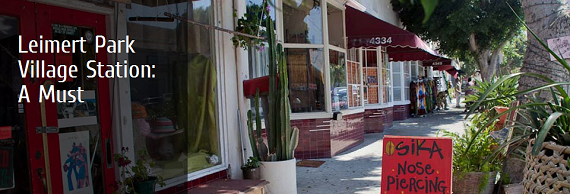
Yesterday, the White House announced that the Crenshaw Light Rail Line is one of fourteen projects nationwide selected to be part of an expedited federal review so that construction could proceed more quickly. This announcement was met with praise from Mayor Antonio Villaraigosa, Senator Barbara Boxer and County Supervisor Mark Ridley-Thomas. Ridley-Thomas even went so far as to ponder whether accelerating construction could lead to enough funds becoming available to construct the Leimert Park Station that has been environmentally cleared but not funded.
Here's the official announcement:
Crenshaw/LAX, California
The Crenshaw/LAX project will extend the Los Angeles County Metropolitan Transportation Authority’s (LA Metro) existing Green Line light rail nearer to the Los Angeles International Airport and connect it to the Expo Line light rail. The Federal Transit Administration (FTA) is providing additional targeted technical assistance to shorten the approval time for this project by several months. In addition FTA and LA Metro will pilot FTA’s new streamlined risk assessment approach for major transit projects to ensure risks and associated mitigation measures are identified and addressed promptly.
“I am so pleased that the Obama administration has taken these steps to fast track the Crenshaw/LAX project, so that local communities will have access to improved transit service even sooner than expected," said Boxer through a press statement. "The Crenshaw/LAX Project will provide many much-needed jobs in the construction industry, which has been hard hit in these tough economic times.”
The first question on everyone's mind is, "how much time can actually be saved by this new process?"
Metro has claimed it can start construction of the Crenshaw line before the end of 2012 which is already a short timeline. Unless the FTA's assistance leads to the line's construction date being moved up to the start of 2012, i.e. within the next four months, it's doubtful that there would be the kind of savings that leads to construction of an unfunded transit station.
But in a time of greater than average unemployment, even if the line's construction begins a couple of months ahead of where it would without the FTA's assistance, it is good news for Angelenos.
"Accelerating this 8.5-mile light rail line which will connect the Expo Line to the Green Line near LAX is exactly what we need to spur job creation and get the economy back on track,” Villaraigosa gushed. "Expediting is really about jobs," Ridley-Thomas agreed.
There are also reasons to believe that the Crenshaw Line isn't the best place to pilot, the "FTA's new streamlined risk assessment approach for major transit projects."
The Crenshaw Subway Coalition has made no secret of its plans to sue Metro over the environmental impact statement prepared by the agency. Changing procedure on risk assessment will certainly give Raymond Johnson, the Coalition's lawyer, another venue to try and derail the project as the risk of running a trade at-grade through the Crenshaw business district is the basis for the Coalition's lawsuit. If a judge accepts their argument, or at least is willing to hear the argument, the expedited process could actually cause delays on the line's construction.
While a new state law limits the time a lawsuit can hold up major construction projects, such as a rail line, the law doesn't apply to federal lawsuits.





